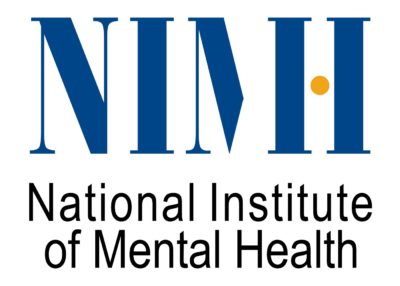
(3-18-22) The National Institute of Mental Health is the largest research organization in the world investigating the causes and potential cures for mental illnesses. Each year, it spends $1.6 billion dollars.
But what is it accomplishing?
Under its current director, Dr. Joshua Gordon, NIMH has focused almost entirely on studying the brain and turned its back on clinical studies – such as the effectiveness tele-psychiatry and studies that could help identify why some Americans with serious mental illnesses are continually entangled in our criminal justice system and how we can help break that cycle.
In this excerpt from a recent paper published in Psychiatric Services, NIMH critic, Dr. E. Fuller Torrey and Treatment Advocacy Center Director, Lisa Dailey, J.D., take Dr. Gordon and NIMH to task for “failing to support research that is likely to help anyone who currently has a serious mental illness.”
The questions they raise deserve to be answered!
What NIMH Should Be Doing
By Dr. E. Fuller Torrey and Lisa Dailey, J.D. (first published in Psychiatric Services) An Excerpt.
Problematic Shift in Research Focus
For the first half-century of its existence, NIMH maintained a research portfolio that had a reasonable balance between clinical and basic research. However, over the past two decades, NIMH has markedly decreased its support for clinical research in favor of funding of basic brain studies. This shift has been documented elsewhere (2), including studies of current NIMH research on schizophrenia (3) and bipolar disorder (4) that found that no more than 10% of the studies are likely to help anybody currently affected by these illnesses within the next 20 years. 
Dr. Joshua Gordon, the current NIMH director, has claimed that the skewing toward basic brain research was justified by the assumption that “psychiatric disorders are disorders of the brain, and to “make progress in treating them we really have to understand the brain” (5).
We question this assumption.
Much useful clinical research can take place, and help people currently affected with psychiatric disorders, without an understanding of how the brain works. To illustrate this, we asked some clinical colleagues with a special interest in serious mental illness what research projects they would suggest NIMH order to provide clinical improvement to individuals with serious mental illness within 5 years. The following 12 research tasks (listed in the order in which they were received) are examples of such projects.
Investigate the use of long-acting injectable antipsychotic (LAI) medications, which are greatly underused in the United States, by conducting a multi-center study based on the CATIE (Clinical Antipsychotic Trials for Intervention Effectiveness) framework to compare different LAI formulations and to assess which patients do well with LAI treatment.
Reduce risk for reoffending among individuals with serious mental illnesses who are being released from prisons and jails by conducting a multi-center study that uses existing databases to compare the effects of psychiatric security review boards, forensic assertive community treatment teams, and conditional release on reoffending.
Improve the treatment of bipolar depression by undertaking a multi-center study comparing traditional antidepressants, esketamine, electroconvulsive therapy (ECT), and transcranial magnetic stimulation to identify patient characteristics that predict success of each treatment type.
Improve the treatment of drug-resistant major depression by performing a study to assess the role of evidence based psychotherapies in treating this condition.
Identify the appropriate duration of psychiatric inpatient stays, especially of the initial hospitalization, by undertaking a multi-center study using existing databases to determine the optimal length of stay for individuals with various clinical characteristics and to analyze costs and benefits of early discharge.
Improve the treatment of depression among patients with cancer by conducting a study comparing the efficacies of antidepressants and evidence-based psychotherapies in this patient population.
Examine the use of clozapine, also greatly underused in the United States, by funding a multi-center trial to collect clinical and serological biomarker data that could be used to predict which patients are most likely to respond to this medication.
Study the efficacies of treatments consisting of combinations of clozapine with other antipsychotic medications as support in well as ECT for the approximately 10% of patients with schizophrenia and other psychoses who do not respond to antipsychotic medication.
Improve the use of the limited professional psychiatric resources in the United States by conducting a study that uses existing clinical databases to investigate which patients do well with telepsychiatry (which has markedly increased during the COVID-19 pandemic) and which patients do better with in-person visits.
Systematically assess probiotics and other low-toxicity, immune-based therapies, which have shown preliminary promise in the treatment of bipolar disorder and prevention of mania.
Systematically evaluate anti-inflammatory medications that have shown early promise in the treatment of psychosis, focusing especially on those patients who have neuro-inflammatory serological markers.
Conduct several pilot studies to investigate how teams providing assertive community treatment (ACT)—which for 40 years has been known to optimally treat individuals with serious psychiatric disorders by improving quality of life and patient satisfaction but is available to only 40% of those needing ACT—can be more cost-effective and therefore become more widespread.
All of these proposed clinical projects are good reasons for NIMH to maintain a balanced portfolio of clinical and basic research.
They also make good economic sense. In 2013, RAND Corporation published a study on schizophrenia research in the United States, the United Kingdom, and Canada, comparing the effectiveness of basic versus clinical research over a 20-year period (6). The study concluded that “clinical research has a larger payback than basic research in terms of health, social and economic benefit over periods up to 20 years.” The study’s authors specifically cited the larger impact clinical research had on patient care.
Given the ongoing and increasing failure of NIMH to support research that is likely to help anyone who currently has a serious mental illness, we recommend that NIMH be required to direct a minimum of 50% of its research funds to clinical research that has a significant chance of helping patients currently affected. We further recommend that the percentage of research funds gong to clinical and basic research be calculated and published on an annual basis by individuals not directly connected to, nor funded by, NIMH. Such individuals could be appointed, for example, by the National Academy of Medicine or by the assistant secretary for mental health under the Department of Health and Human Services. The important point is to restore the original balanced research portfolio for NIMH as intended by Congress.
Individuals currently affected with a serious mental illness have a right to research that addresses their needs.
What You Can Do. NIMH should divide its research funds evenly between basic and clinical research, as it formally did. If you agree and want to help change the current situation, don’t bother writing to NIMH. In 2020 mental illness advocates sent over 6,000 messages to NIMH, in response to their proposed 5-year research plan, urging them to include more clinical research. NIMH simply ignored every one of these messages. NIMH does not appear to care what you think or what I think. NIMH does care what members of Congress think. Therefore, send a message to your elected representatives and senators. Tell them what you think about NIMH failing to do research to help those currently affected by mental illness. Urge them to contact their congressional colleagues who are the key people determining NIMH`s budget.
Tell them to tell NIMH that people who are currently affected also have a #Right2Research.
(Part Two Tomorrow: Did NIMH Director Dr. Joshua Gordon mislead reporter during interview?



